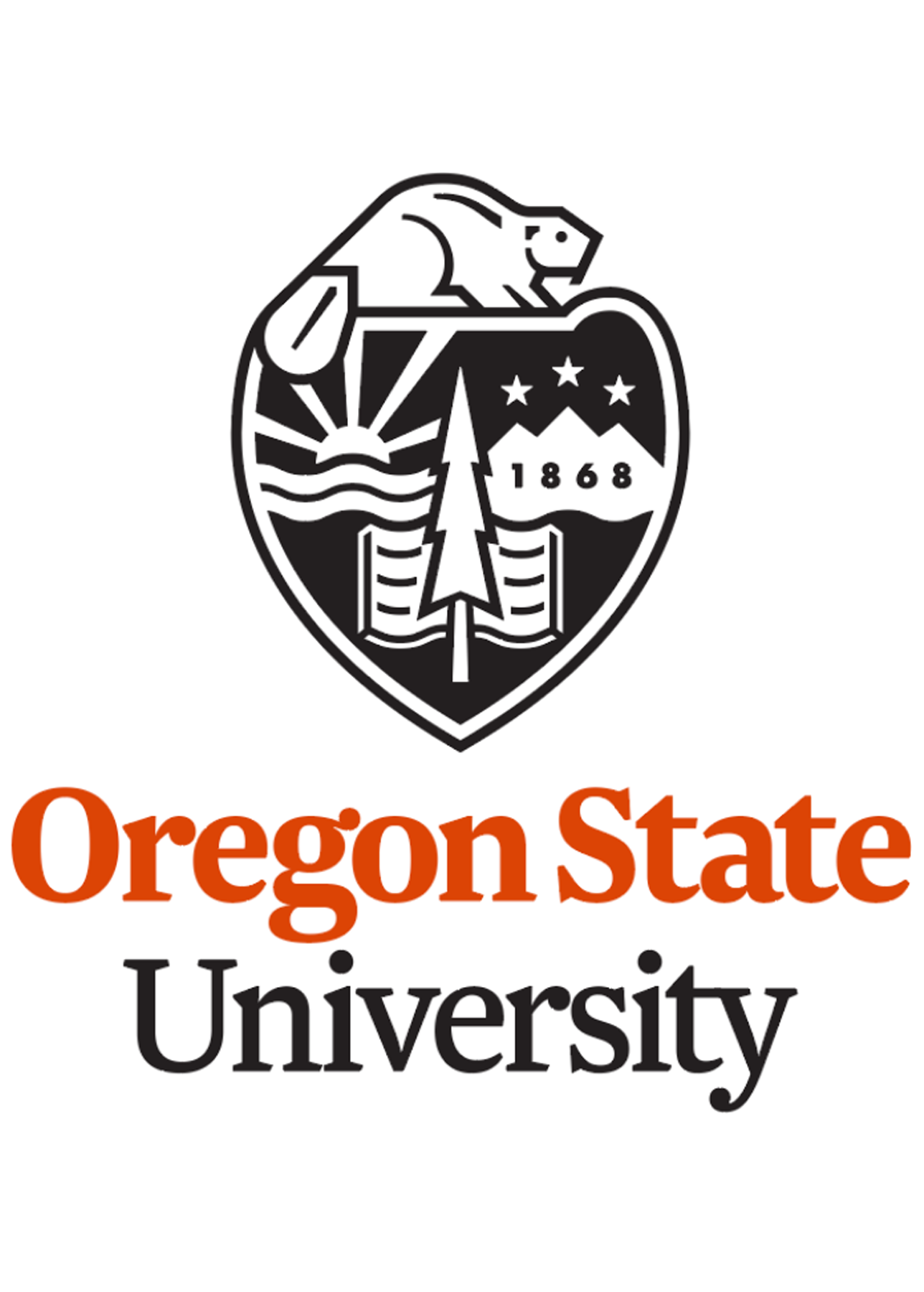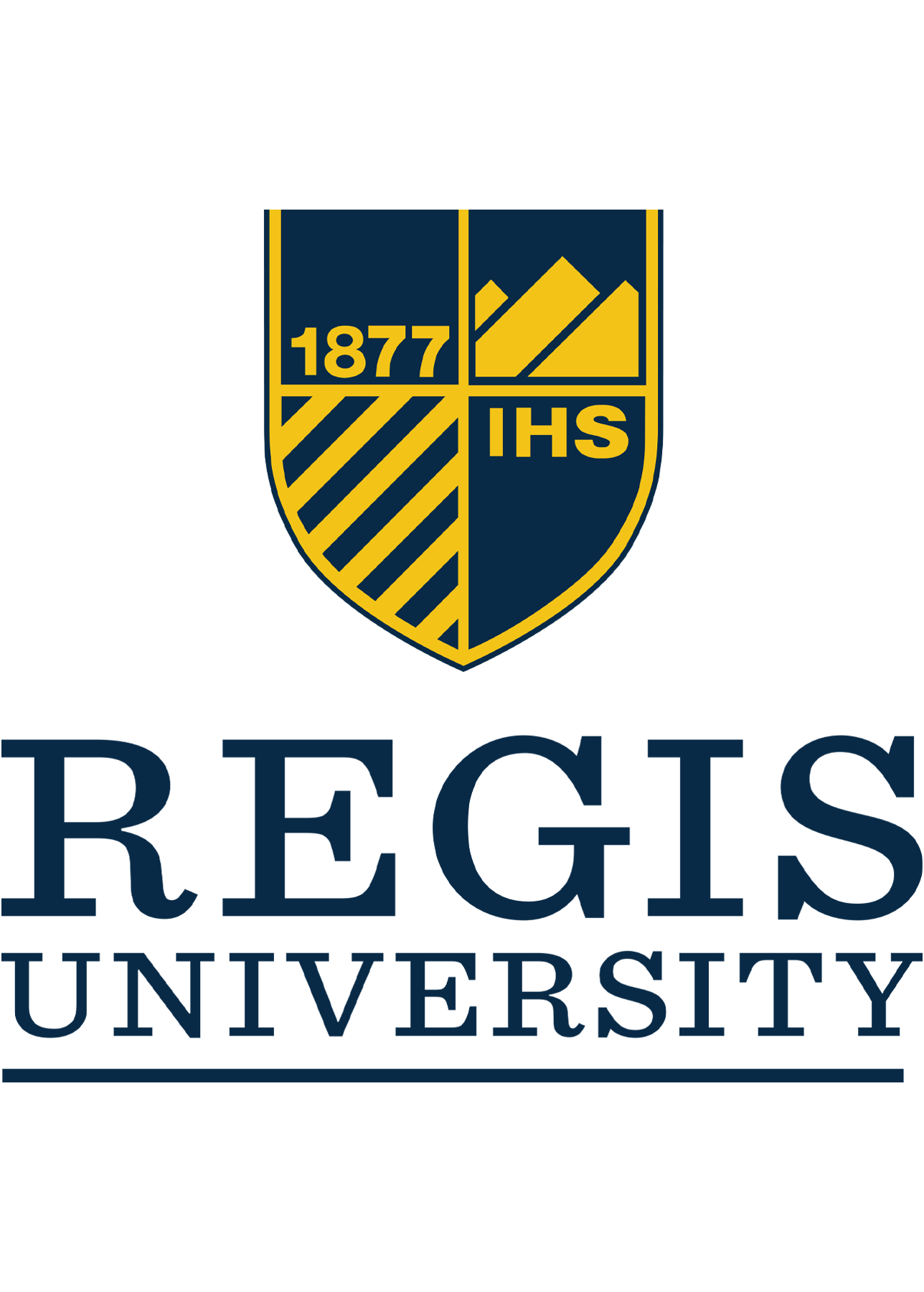Computers are inextricably woven into modern life, making the demand high for individuals who can develop hardware and software, defend against cyberattacks, and explore new technologies like AI. An online computer science degree teaches all these skills and more.
According to the Bureau of Labor Statistics (BLS), overall employment in the computer and IT field will grow 15% through 2031, with an estimated 682,800 new jobs, including roles like software developer, who earn a median annual salary of $109,020; information security analysts, who earn $112,00 per year, and computer and information research scientists, who earn $136,620 annually.
To help students select the online computer science program that’s right for them, Intelligent.com created this list based on reviews of dozens of programs. Students can also learn more about the career outlook for computer science, what to expect in an online computer science degree program, and answers to frequently asked questions about this area of study.
What Can I Expect from an Online Computer Science Program?
Computer science encapsulates several sub-fields related to computational and software systems, including computer systems and networks, security, artificial intelligence, computer programming, software development, and more.
Because of the field’s interdisciplinary nature, earning a degree in computer science requires aptitudes in areas such as mathematics, coding languages, technical knowledge, problem-solving, analytical thinking, and attention to detail.
What students can expect from an online computer science will vary based on their desired degree. The most common types of degrees students in this field earn include associate, bachelor’s, or master’s:
| Degree level | Number of credits | Degree options | Degree Details |
| Associate | 60 | Associate of Science (AS)
Associate of Applied Science (AAS) |
— Introductory-level courses in foundational computer science skills.
— Prepares students for entry-level jobs and bachelor’s degree programs. |
| Bachelor’s | 120 | Bachelor of Science (BS)
Bachelor of Applied Science (BAS) Bachelor of Business Administration (BBA) |
— Introductory- to intermediate-level courses in foundational and advanced computer science topics. Curriculum may offer opportunities for specialization. — Prepares students for entry- to mid-level jobs and master’s degree programs. |
| Master’s | 30-60 | Master of Science (MS)
Master of Business Administration (MBA) Master of Engineering (M.Eng) |
— Advanced coursework, typically specializing in a computer science sub-field or dual area of focus.
— Prepares students for high-level jobs, including management and teaching positions. |
An associate degree program will focus on introductory-level courses that give students an understanding of basic computer science skills and principles. This degree prepares students for entry-level jobs in the field or further study at the bachelor’s level.
Earning a bachelor’s in computer science will also give students the skills and knowledge they need for entry-level and mid-level jobs. A bachelor’s degree allows students to progress into an intermediate study of computer science. It may include an option for a concentration in a computer science sub-field, such as AI, cybersecurity, software engineering, computer programming, or data science. Programs may include requirements for internships or capstone projects.
At the master’s level, there are two variations of online computer science programs. Some are designed for students with an educational and professional background in computer science and who want to advance their skills in an academic setting. Others cater to those with bachelor’s degrees in a different field but want to transition to computer science. Master’s programs often include experiential learning requirements and thesis or capstone projects.
Online degree programs are delivered synchronously or asynchronously. In synchronous programs, students meet virtually at designated times for classes. While this format allows for peer-to-peer and faculty interaction, the pre-scheduled classes might not work for all students.
Those who need more flexibility should consider asynchronous programs with no scheduled class meetings. Students can complete their lessons and assignments at the time that works best for them. However, they should remember that this learning format requires extra motivation and accountability to succeed.
Why Trust Us
The Intelligent.com Higher Education Team is dedicated to providing students with independent, equitable school and program rankings and well-researched resources. Our expert-driven articles cover topics related to online colleges and programs, paying for school, and career outlooks. We use data from the U.S. Department of Education’s College Scorecard, the National Center for Education Statistics, and other reputable educational and professional organizations. Our academic advisory team reviews content and verifies accuracy throughout the year for the most current information. Partnerships do not influence rankings or editorial decisions.
- Analyzed over 2,000 national, accredited, and nonprofit colleges and universities
- 800+ rankings pages are reviewed and updated yearly
- Content is informed by reputable sources, surveys, and interviews with academic advisors and other experts
- Over 100 data points are reviewed for accuracy and quality throughout the year, including sources
How we rank schools
Our list features the best online Computer Science degree programs at top colleges nationwide. Each school featured is a nonprofit, accredited institution — either public or private — with a high standard of academic quality for post-secondary institutions.
We evaluated each school’s program on tuition costs, admission, retention and graduation rates, faculty, reputation, and the student resources provided for online students. We collected data from trusted sources like the National Center for Education Statistics, individual school and program websites, school admissions counselors, and other data sources. Then, we calculated the Intelligent Score on a scale of 0 to 100 based on the following criterion:
Academic Quality:
- Admission rate versus enrollment rate
- Retention rate of students who return after year one
- Accreditation status (regional and programmatic)
- Nonprofit status, both private and public institutions
Graduation Rate
- Overall graduation rate
- Total number of currently enrolled students, including diversity metrics
- Student-to-faculty ratio
Cost and ROI
- In-state and out-of-state per-credit tuition rates and fees
- Required credits to graduate
- Earning potential after graduation
- Availability of federal student loans, scholarships, and other financial aid options
Student Resources
- Available student services for online-only and hybrid programs
- On-campus amenities like tutoring centers and the number of libraries
Read more about our ranking methodology.
Best 38 Online Computer Science Degree Programs
FiltersInstitution Type
Status
- Intelligent Score
- Alphabetically By University Name
- Acceptance Rate
- Enrollment
- In-state Graduate Tuition
- Out-of-state Graduate Tuition
- In-state Undergraduate Tuition
- Out-of-state Undergraduate Tuition

Oregon State University
Intelligent Score: 99.76In-state: $9,846
Out-of-state: $29,445
In-state: $13,257
Out-of-state: $13,257
SAT: 1080-1310
ACT: 21-29
$428
Online
Northwest Commission on Colleges and Universities
120

Regis University
Intelligent Score: 98.61In-state: $38,208
Out-of-state: $38,208
In-state: $14,322
Out-of-state: $14,322
SAT: 1000-1220
ACT: 21-28
$589
Online
Accreditation Board for Engineering and Technology
120

Maryville University
Intelligent Score: 97.52In-state: $24,766
Out-of-state: $24,766
In-state: $14,346
Out-of-state: $14,346
SAT: N/A
ACT: N/A
$540
Online
Higher Learning Commission
128

Auburn University
Intelligent Score: 97.32In-state: $10,080
Out-of-state: $30,240
In-state: $10,080
Out-of-state: $10,080
SAT: 1160-1320
ACT: 25-31
$558
Online
Accreditation Board for Engineering and Technology
120

University of Florida
Intelligent Score: 96.31In-state: $4,477
Out-of-state: $25,694
In-state: $10,770
Out-of-state: $10,770
SAT: 1290-1460
ACT: 29-33
Resident: $112
Non-Resident: $500
Online
Southern Association of Colleges and Schools Commission on Colleges
120

Liberty University
Intelligent Score: 96.21In-state: $14,791
Out-of-state: $14,791
In-state: $7,935
Out-of-state: $7,935
SAT: 1040-1250
ACT: 21-29
$390
Online
Southern Association of Colleges and Schools Commission on Colleges
121

Southern New Hampshire University
Intelligent Score: 95.54In-state: $9,600
Out-of-state: $9,600
In-state: $18,810
Out-of-state: $18,810
SAT: N/A
ACT: N/A
$330
Online
New England Commission of Higher Education
120

Saint Leo University
Intelligent Score: 95.49In-state: $23,990
Out-of-state: $23,990
In-state: $14,568
Out-of-state: $14,568
SAT: N/A
ACT: N/A
$425
Online, On-Campus
Southern Association of Colleges and Schools Commission on Colleges
120

Western Governors University
Intelligent Score: 95.13In-state: $6,380
Out-of-state: $6,380
In-state: $7,500
Out-of-state: $7,500
SAT: N/A
ACT: N/A
$259
Online
Accreditation Board for Engineering and Technology
123

University of Illinois Springfield
Intelligent Score: 93.16In-state: $14,317
Out-of-state: $33,824
In-state: $15,016
Out-of-state: $15,016
SAT: 1200-1460
ACT: 27-33
$368
Online
Higher Learning Commission
120

Regent University
Intelligent Score: 92.14In-state: $17,220
Out-of-state: $17,220
In-state: $15,552
Out-of-state: $15,552
SAT: 940-1220
ACT: 21-29
$395
Online, On-Campus
Southern Association of Colleges and Schools Commission on Colleges
120

National University
Intelligent Score: 88.35In-state: $13,320
Out-of-state: $13,320
In-state: $15,480
Out-of-state: $15,480
SAT: N/A
ACT: N/A
$370
Online, On-Campus
Accreditation Board for Engineering and Technology
120

CSU Global
Intelligent Score: 88In-state: $9,426
Out-of-state: $28,147
In-state: $10,520
Out-of-state: $10,520
SAT: 1070-1280
ACT: 23-29
$375
Online
Higher Learning Commission
120

Franklin University
Intelligent Score: 86.96In-state: $9,552
Out-of-state: $9,552
In-state: $16,080
Out-of-state: $16,080
SAT: N/A
ACT: N/A
$398
Online
Higher Learning Commission
124

University of Missouri - St. Louis
Intelligent Score: 85.57In-state: $9,330
Out-of-state: $27,612
In-state: $9,478
Out-of-state: $9,478
SAT: 1110-1320
ACT: 23-29
Resident: $504
Non-Resident: $1,253
Hybrid, On-Campus
Higher Learning Commission
120

Kennesaw State University
Intelligent Score: 83.81In-state: $4,450
Out-of-state: $15,704
In-state: $5,328
Out-of-state: $5,328
SAT: 1030-1200
ACT: 19-25
$185
Hybrid, On-Campus
Accreditation Board for Engineering and Technology
120

Wilmington University
Intelligent Score: 83.66In-state: $11,430
Out-of-state: $11,430
In-state: $8,784
Out-of-state: $8,784
SAT: N/A
ACT: N/A
$419
Online, On-Campus
Middle States Commission on Higher Education
120

Norwich University
Intelligent Score: 83.21In-state: $40,608
Out-of-state: $40,608
In-state: $18,614
Out-of-state: $18,614
SAT: N/A
ACT: N/A
$375
Online
New England Commission of Higher Education
120
How to Choose the Online Computer Science Degree Program That’s Right for You
Step 1: Choose your area of study
Establish clear educational and career goals at the start of your search for an online computer science degree program. Is there a specific type of computer science job you’re seeking, or do you want a diverse skillset to qualify you for multiple positions? Are you interested in a specialization? What type of degree will best suit your current level of education and experience? Answering these questions now will help you find a program that meets your needs.
Also, consider logistics. Do you want a full-time or part-time program? Can your schedule accommodate synchronous classes, or do you need the flexibility of an asynchronous format? If necessary, can you participate in on-site learning experiences, such as internships?
Step 2: Research schools and programs
Once you begin looking at specific schools, confirming the accreditation status of the institutions you’re considering is a good idea. A school’s accreditation status can affect a student’s financial aid eligibility, employment opportunities, and future educational options.
Students should use the research phase to get clarity on the school’s curriculum, admission requirements, cost, and financial resources. The following questions can help students determine if a program is a good fit:
- Who are the faculty, and what are their credentials?
- How do online students interact with classmates and faculty?
- Is coursework delivered synchronously or asynchronously?
- What does the curriculum include? Are there options for electives or specializations?
- What support services are available for online students, such as tech support, tutoring, academic and career advising, and counseling?
- What networking opportunities are there for online students?
Schools typically publish this information on their websites and in printed recruitment materials. Students can also contact an admissions counselor or program representative directly. Many programs host virtual open houses or information sessions for online students to interact with faculty and current students. Following schools and programs on social media can also provide insight into the institutional and department culture.
Step 3: Prepare for applications and tests
The specifics of the application process will vary by school and degree level. Before beginning an application, students should confirm all admission requirements and procedures with an admissions counselor.
A standard application for an online degree in computer science includes the following:
- Application and fees
- Official transcripts from all schools previously attended
- Personal essay
- Letters of recommendation
- Resume/CV
Applicants to associate or bachelor’s degree programs may have to submit SAT or ACT scores, although schools are increasingly moving to test-optional policies. Those applying as transfer students from a different institution must submit official transcripts from their previous colleges for transfer credit evaluations.
There may be additional requirements at the graduate level, such as professional experience, a bachelor’s degree in computer science or a related field, a minimum undergraduate GPA, or prerequisite coursework. Applicants may have to submit GRE or GMAT scores or participate in an interview.
International applicants often have to submit additional documents, including an official transcript evaluation and ESL test scores.
Step 4: Select your program
Compare the research you’ve compiled on the different options for schools and programs. Evaluate schools based on the criteria that are important to you, such as overall cost, curriculum, specialization options, and available financial aid. This information can help you decide which schools you want to apply to and which one you’ll attend. There’s no magic number, but students should remember that if they’re applying to a high volume of schools, application fees can quickly add up.
Step 5: Determine how you’ll pay for your degree
Throughout the research process, gather information from the schools you’re considering about their overall cost and available financial aid options, including loans, grants, scholarships, work-study, fellowships, and assistantships. Students should prioritize seeking out gift aid, which does not require repayment.
Now is also the right time to complete the Free Application for Federal Student Aid (FAFSA) for students who still need to submit it. Schools use the FAFSA to determine eligibility for need-based aid, including federal student loans available to undergraduate and graduate students. Private education loans are also available, although students should carefully consider loan amounts and repayment terms before borrowing money for school.
Students working while enrolled in an online computer science degree can check if their employer offers tuition assistance benefits. Some schools offer tuition discounts to veterans and active duty service members. These individuals should also explore eligibility for GI Bill benefits.
Still Looking for the Right Fit? Discover Similar Programs
Computer science is just one of many degrees students can earn to prepare them for lucrative careers in the growing IT field. Based on your specific interests and career goals, these programs may also be worth exploring:
- Online Associate in Computer Programming
- Online Computer Programming Degrees
- Online Information Technology Degrees
- Online Cyber Security Degrees
- Online Master’s in Artificial Intelligence
- Online Master’s in Data Science
- Online Master’s in Information Systems and Technology
What Can I Do With an Online Computer Science Degree?
Career outlook
As long as computers are integral to day-to-day life, individuals who understand the various functions and theories behind the technology will be in demand. The BLS predicts that, during the next decade, employment in computer and IT will grow at a pace that’s much faster than the average for all jobs in the U.S.
Computer science also overlaps with many other industries, including business, healthcare, education, government, and military. Students with a specific idea of which sector they want to work in should seek out an online computer science degree program that will expose them to their chosen field.
- Computer support specialist — An associate degree in computer science prepares students to assist computer users and organizations by testing and evaluating network systems, troubleshooting issues, performing maintenance, and offering technical support.
- Median annual salary: $59,660
- Projected employment growth (through 2032): 5%
- New jobs projected: 914,100
- Computer systems analyst — Also known as a system architect, this role focuses on reviewing, designing, and implementing computer systems for organizations to help improve their efficiency and lower operating costs. The minimum education level for this job is typically a bachelor’s degree.
- Median annual salary: $102,240
- Projected employment growth (through 2032): 10%
- New jobs projected: 531,400
- Software developers — Another bachelor-level entry field, developers create specific software applications or systems allowing users to complete computer-based tasks.
- Median annual salary: $109,020
- Projected employment growth (through 2032): 25%
- New jobs projected: 1,622,200
- Data scientists — These individuals use analytical tools and techniques to collect, categorize, and analyze data, extracting valuable insights that can benefit organizations and companies. Depending on the specific position, employers may require either a bachelor’s or a master’s degree.
- Median annual salary: $103,500
- Projected employment growth (through 2032): 35%
- New jobs projected: 168,900
- Computer and information research scientists — At this high-level position, which usually requires a master’s degree, individuals use advanced research techniques to study problems and design innovative uses for new and existing technology.
- Median annual salary: $136,620
- Projected employment growth (through 2032): 23%
- New jobs projected: 36,500
Online College/Degree Scholarship Database
Intelligent Scholarship Finder Tool
"A Helping Hand" Scholarship
Award Amount: $500
Due Date: January 31, 2025
"Follow Your Own Path" Essay Scholarship
Award Amount: $500
Due Date: January 31, 2025
"Tuition Solution" Scholarship for STEM Students
Award Amount: $500
Due Date: January 31, 2025
$25k "Be Bold" No-Essay Scholarship
Award Amount: $25,000
Due Date: Closed for 2024
(ISC) Graduate Cybersecurity Scholarship
Award Amount: $5,000
Due Date: Closed for 2024
(ISC) Women in Information Security Scholarship
Award Amount: $5,000
Due Date: Closed for 2024
A.C. "Kate" & Leo Joseph Merlone St. Dominic Catholic Church of Saginaw Member Scholarship
Award Amount: Varies
Due Date: Closed for 2024
A.C. "Kate" & Leo Joseph Merlone Teaching Scholarship
Award Amount: Varies
Due Date: Closed for 2024
a/e ProNet David W. Lakamp Scholarship
Award Amount: $5,000
Due Date: Closed for 2024
AAAE Native American Scholarship
Award Amount: $1,500
Due Date: March 15, 2025
Frequently Asked Questions About Online Computer Science Degree Programs
Should I get a computer science degree in person or online?
How you earn your computer science degree depends on which format suits your practical needs and learning preferences best. High-quality computer science degree programs exist in-person and online; both formats have advantages and disadvantages.
Pros of attending a computer science degree program online include flexibility, accessibility, and affordability. Because they allow students to learn from anywhere at any time, online programs can make a degree program more accessible for those with jobs or caregiving responsibilities. However, remote learning requires that students be comfortable with independent learning and have strong time management and organization skills.
Meanwhile, some students learn better through hands-on activities and interaction with classmates and instructors. These students may find that an in-person or hybrid program meets their needs better.
How do I apply to an online computer science degree program?
Find out what the program’s eligibility and application requirements are. You can find this information on the school’s website or by contacting the admissions office directly. Before starting an application, confirm that you meet the basic eligibility requirements for the program. Requirements include a minimum GPA in high school or college, prerequisite coursework or a degree related to computer science, or prior work experience.
Most schools accept applications and supplemental materials through admissions portals on their websites. Undergraduate students can use the Common Application to apply to multiple schools simultaneously. In addition to an application, students typically must submit letters of recommendation, essays, and a resume. Students should send official documents like transcripts directly to schools. Some programs may require an interview with applicants as well. It can be helpful to keep track of the various application materials and deadlines using a spreadsheet or checklist.
What is the average cost of an online computer science degree?
For undergraduate students in the 2021-22 academic year, average tuition at public universities was $9,596, while private university students paid an average of $37,222. Meanwhile, tuition for graduate students averaged $12,394 at public schools and $26,621 at private institutions.
However, several factors affect what an online degree in computer science will cost students. Some factors include the type of school a student attends (public or private), where the student resides, and what kind of financial aid they receive. For the most accurate information on the cost of a program, contact the school’s financial aid office to speak with a counselor.
When budgeting for an online degree, it’s essential to consider additional costs beyond tuition. These costs can include fees assessed by the school for virtual classroom technology, student services, and academic resources; books and supplies; and personal technology like a computer and reliable internet. Students in computer science degree programs may be required to purchase specific software programs or have a computer that meets certain specs.
How long does it take to complete an online computer science degree program?
The type of degree a student is seeking, and the number of credits it requires are two key factors in determining how long it will take to earn a computer science degree online.
Associate degree programs typically require 60 credits and can be completed in two years of full-time study. Bachelor’s degrees, which require at least 120 credits, are designed for four years of full-time study. The number of credits in a master’s program can vary from 30-60 credits, which can take one to two years of full-time study.
Enrolling part-time often adds time to the length of the program (unless it’s specifically designed as a part-time program). Meanwhile, some programs are offered in an accelerated format that compresses coursework into a shortened time frame. Another option is a degree completion program that allows students to transfer in maximum credits, decreasing the time it will take to complete their degree.
Is an online computer science degree worth it?
Studying computer science at the post-secondary level can have numerous benefits for students. Many employers seek candidates with a degree, as this demonstrates they have the training and skills necessary for the job. Earning a master’s degree can allow students to work in research and development, innovating new technologies and applications.
From a financial perspective, there are also benefits to earning a degree. According to the BLS, individuals with a bachelor’s degree earn a median weekly salary of $1,432, while those with a master’s degree earn $1661 per week. Education level also affects unemployment, as individuals with more education tend to experience lower unemployment rates.
However, students interested in computer science may also want to consider whether alternative education, like a bootcamp or certificate program, might be a better fit than a full degree program. Bootcamps and certificate programs are typically shorter and less expensive than a degree program, but they provide focused training for a smaller pool of jobs.
Read More about Computer Science Degrees
Compare School Options
Related Degrees
- Web Design
- Cyber Security
- Information Systems and Technology
- Internet Security
- Educational Technology
- Web Development
- Information Systems Security
- Data Science
- Information Technology
- Database Management

